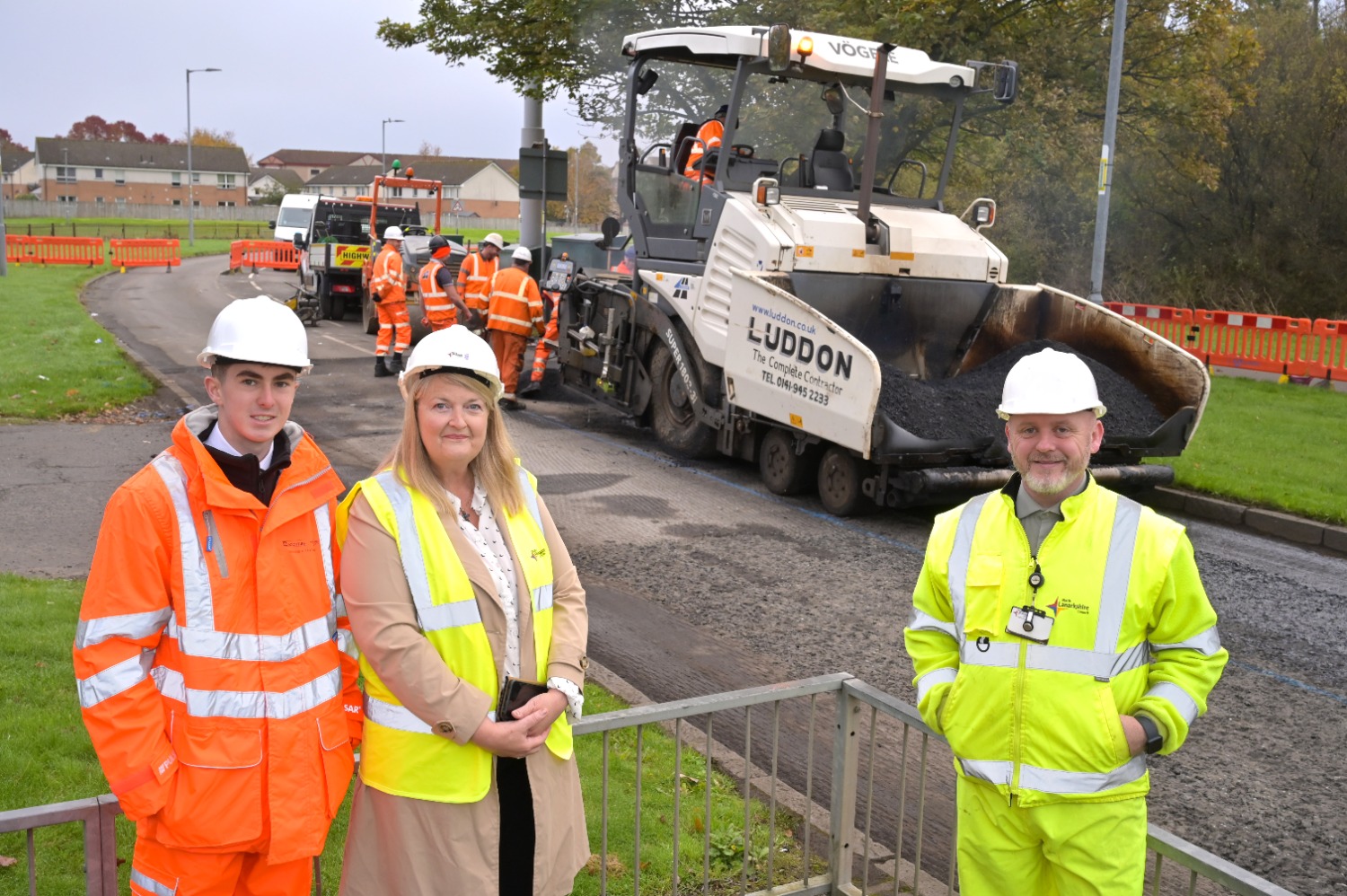
A road in Motherwell has become the first in the UK to trial a new technology which uses recycled plastic to reduce the bitumen content in asphalt.
As part of the Live Labs 2 programme – a three-year long, UK-wide, £30 million project, funded by the UK Government and launched by ADEPT, aimed at decarbonising the local highway network – the trial aims to cut carbon emissions generated by road resurfacing operations whilst maintaining road surface durability.
The project involved incorporating half a tonne of the EcoFlakes product from the German company Ecopals, into a traditional Hot Rolled Asphalt mix which was then used to resurface a section on Chapelknowe Road.
The material replaces traditional oil-based polymers with recycled plastic, helping reduce carbon emissions by up to 20%. Previous versions of plastic additives were added as physical elements in the mix, but Ecoflakes are homogenously mixed into the bitumen at the asphalt plant and act as a polymer modifier. This changes the properties of the bitumen, slowing down ageing of the road and reducing carbon emissions.
The trial is the latest project by North Lanarkshire Council and Amey as part of the Centre of Excellence for Decarbonising Roads (CEDR), which is funded by Live Labs 2.
Another trial in North Lanarkshire earlier this month tested the use of biochar in surfacing, a material that absorbs and stores carbon, acting as a ‘carbon sink.’ The resurfacing completed at Crofthead Crescent in Bellshill incorporated biochar from a partner Live Labs project in West Sussex and South Gloucestershire, created from heating grass cuttings collected in maintaining verges through pyrolysis to create biochar.
Councillor Helen Loughran, convener of the environment and climate change committee at North Lanarkshire Council, said, “I’m proud that North Lanarkshire Council is leading the way on this important work. As the only council in Scotland to be involved with Live Labs 2 we really are blazing a trail for others to follow.
“This is a fantastic example of how local authorities can lead the way in tackling climate change. By trialling cutting edge new materials like EcoFlakes and biochar, we’re showing that sustainable infrastructure is not only possible but practical.”








